Women are the backbone of Mississippi’s economy, with nearly 75% considered the primary breadwinner in their homes. So it makes economic sense that when women prosper, so do their families and communities.
In a keynote address at the Atlantic State of our Union townhall in Jackson, Mississippi, our grantees discussed barriers to women’s success – such as equal pay, workplace supports, education, access to child care and adequate health care – while providing solutions that create pathways for prosperity for women, families and the state.
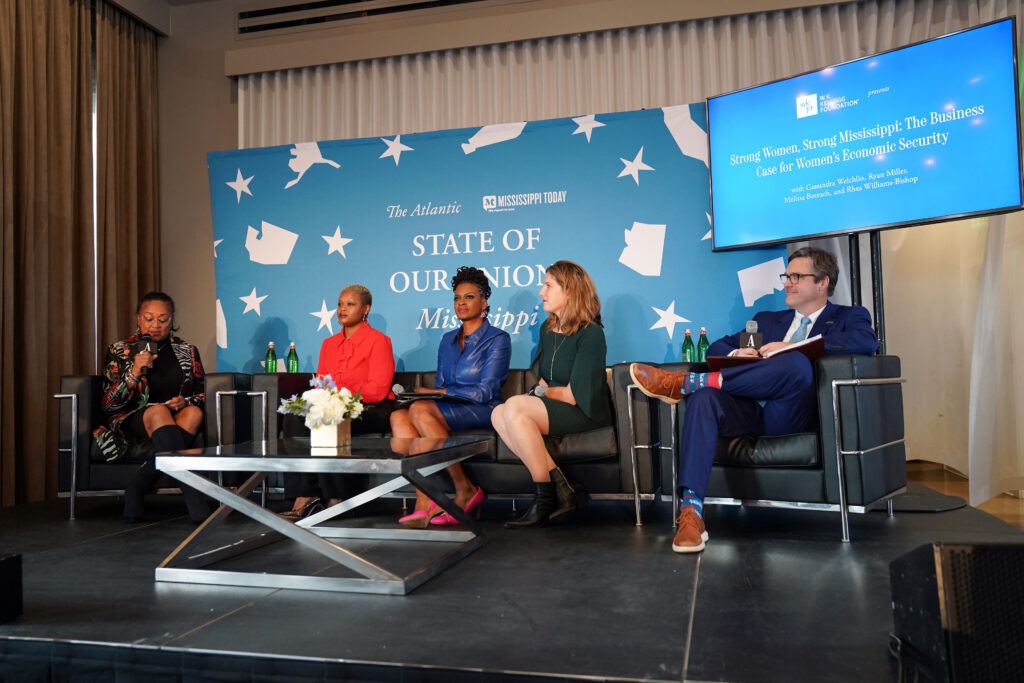
Our panel was led by Rhea Williams-Bishop, director of Mississippi and New Orleans Programming, with (left to right) Nakeitra Burse, Cassandra Welchlin, Melissa Botech, and Ryan Miller.
Women make up nearly half the workforce, yet two-thirds of them are paid the federal minimum wage of just $7.25 per hour. That’s caused Mississippi to have the highest rate of poverty in the country for women; at 20%, it’s nearly double the national average of 12%.
Additionally, women spend nearly 40% of their income on child care and don’t have access to health care and workplaces supports like paid medical leave, oftentimes having to choose between their job and their health and family.
Taking the wage gap alone, if women in Mississippi received pay comparable to men, the poverty rate for working women would be cut by more than half, the poverty rate among children with working mothers would be reduced by one-third, and the Mississippi economy would have an additional $4.15 billion in wage and salary income.
Read a report from the National Women’s Law Center and the Mississippi Black Women’s Roundtable that details the gaps and opportunities to creating a prosperous state, where all children thrive.
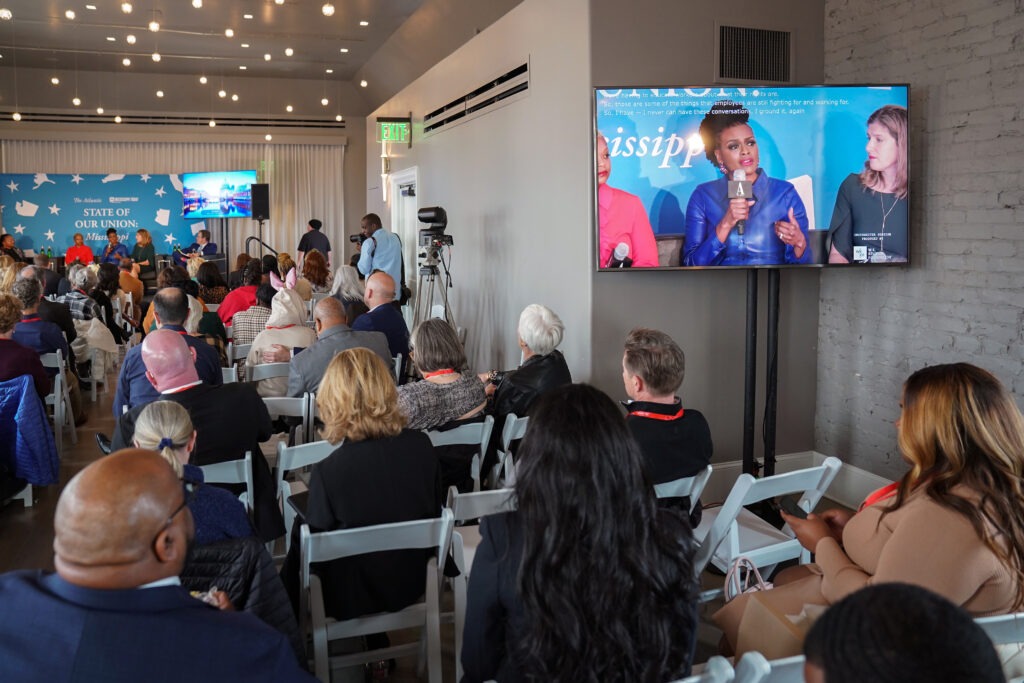
Read the Mississippi Mortality Review Committee’s report examining maternal deaths between 2017 and 2019. The committee found that nearly 58% of deaths occurred during pregnancy or within 60 days after delivery and that Black women’s maternal mortality rate was four times higher than White, non-Hispanic women.
Want to learn more about the issues? Listen to Strong Women, Strong Mississippi: The Business Case for Women’s Economic Security and hear what’s needed to ensure children and families thrive.
Our speakers:
- Cassandra Welchlin, Executive Director, Mississippi Black Women’s Roundtable
- Ryan Miller, Executive Director, Accelerate MS
- Dr. Nakeitra Burse, CEO & Principal Strategist, Six Dimensions
- Melissa Botech, Vice President for Income Security and Child Care/Early Learning, National Women’s Law Center
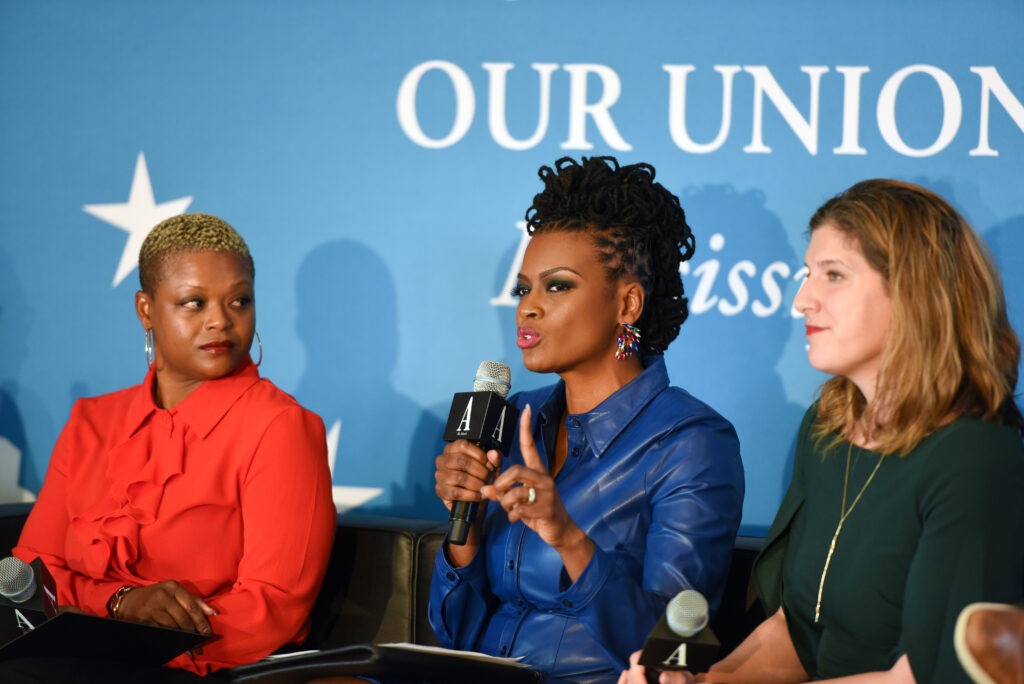
From left to right, Dr. Nakeitra Burse, Cassandra Welchlin, and Melissa Botech at the event.
Early Childhood Care and Education: The Backbone of Our Economy
Early childhood care and education enable parents to participate fully in the workforce, while feeling assured that their children are well cared for and being prepared for life. Yet early childhood education teachers make less than workers in the fast food industry. The competition for workers is creating a shortage of teachers and forcing caregivers, who can’t find care for their children, out of work. Learn what early childhood education experts in Mississippi are doing to close the gaps.
Maternal health is everyone’s issue
Maternity health care desert is a new name for an old phenomenon: areas of our country where no health care options exist for women and birthing people. In Mississippi, and elsewhere, health care deserts disproportionately affect Black women. But this is just one of the factors contributing to maternal mortality and morbidity rates. Not only do women need health care services, they need to have them covered by insurance. What impacts women impacts everyone. Maternal health care is critical to ensure women can sustain their roles as caregivers, providers, first educators and holding households together. Hear from advocates and mothers in Mississippi working to strengthen families by ensuring moms can bring new life into the world safely, in health and happiness.
When women earn equal pay, everyone wins
Women have been the backbone of communities and the primary breadwinners for their families in Mississippi and the rural south for generations. Career and education pathways often push women into low-wage jobs, which limits their abilities to provide everything children need to thrive. See what organizations in Mississippi are doing to close the racial wage gap.




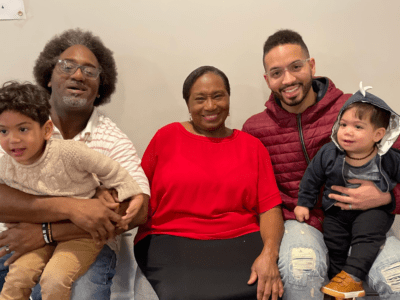
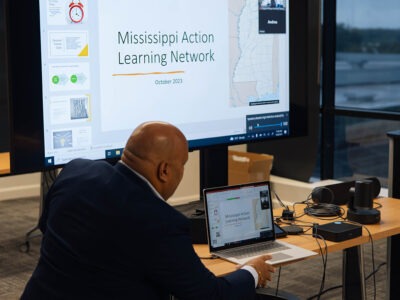


Comments